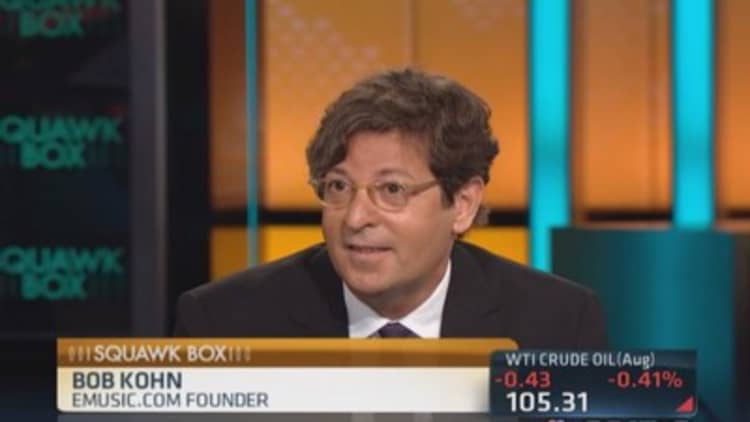
Amazon.com became a powerhouse among Internet retailers thanks to the scale of its goods and its value. Though Amazon has "done a lot of good," the online retailer has become so big and powerful that its aggressive pricing model could threaten to end the publishing industry, a technology attorney told CNBC on Monday.
"What's happening with Amazon is that they're taking advantage and trying to break some rules in order to win this 'winner take all' game," Bob Kohn, founder of EMusic.com, told "Squawk Box."
Read MoreCompeting with Amazon: Costco's side of the story
To Kohn, the company is monopsony engaged in "predatory pricing." Amazon can currently purchase a book for $13, for example, and then sell it for $9, Kohn said. With customers hungry for a discount, Amazon will continue to sell books at a discount until it has captured nearly all of the market share, he said. Eventually, he thinks the retailer will drive prices down to zero, offering authors and publishers literally nothing for their works.
"Eventually they're going to try to charge more, but when you have 90 percent of the market and you go to authors, even self-published ones, and say we don't want to pay anymore, where are you going to go to get your book published? If Amazon has 90 percent share, there's no place else to go."
Kohn said Amazon's aggressive pricing is dangerous because it could hamper the creation of new books, negatively affecting free speech and innovation.
Read MoreThe Amazon CEO behind conference room doors
"The public has an interest in the creation of new works of authorship, like new books, and you can't get new books without compensating authors some price above zero."
A request for comment from Amazon went unreturned.
—By CNBC's Drew Sandholm.


